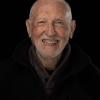Thank you Sensei and John Hemming for responding/contributing to my posts. I will attempt to address the last four since I last contributed - but maybe not in order; please bear with me. But feel free to skip this if it is too long or seems to miss your points.
People do differ, oft-times in quite widely disparate ways. I recall a small TV experiment in which half-a-dozen or so volunteers were fed identical nutrition for a few days. The results were very different - a couple did not alter their body composition whilst all the others did, some quite significantly. One of the reasons I started self-tracking was I suspected that the received wisdom at the time might not apply to me - and it didn't. The plausible reasons are many, but the main lesson was that only by self-tracking could I be sure what worked for me. I have since read many seemingly expert people quoting apparent good research make different recommendations - high-fat, low fat; no animal fat, lots of animal fat; low carb/high carb. etc. I emphatically do not agree that all drugs work similarly for all people within a narrow range of variability. One gaping hole in this theory is that most drugs are trialled on young white males - not females; not the old; not children (yet then prescribed for all and sundry). On top of that, there is indeed often wide variability in the tested group. It gets worse, as recently reported (but known for some time, see long history of poor research and fraud - not just the Sacklers but Ancel Keys, the tobacco and sugar lobbies work, and books such as Wrong by David Freedman, Devra Davis' The Secret History of the War on Cancer. I could go on, but with this long history of bad research, fraud, and poor research, I am surprised by your surprise. Having said all that, I note that you too are aware of some shortcomings of some research.
My own tracking shows that for me, how much I eat hardly matters - it is the type of food I eat that matters. Similarly, exercise hardly changes my body composition; it is nutrition that does. Oddly, exercise correlates with reduced muscle-mass for me. I cannot explain that, it is just so.
As regards supplements, I judge them by how they correlate with all my metrics. I may decide to take any particular one because there’s been some plausible explanation of how it may help me, but then find it correlates badly on my metrics -such as MitoQ and Niacel. Hence my caution on arguments for ideas on such supplements to help by interfering with my mitochondria. I’ve had similarly mixed results for melatonin.
Re Sensei: I'm not sure it is correct to say everything is in the end cellular - the body's system is more than the sum of its parts. And what may be good for some parts may not be good for others too. For instance, exercise is good for CV and cancer, but not for kidneys - as it generates creatine, which is bad for kidneys. So I have to make a judgement as to how much exercise I do. Another aspect is that of body fat - we now know that being somewhat overweight seems to enhanced longevity even to' other cellular evidence is that too many fat cells seem bad. This is further underlined by obese people surviving surgery better than the less obese. It may be of interest that when I was considered terminally ill with cancer, it was body fat that was depleted, not muscle – maybe with that fat I would not have made it.
For me, CR is maybe not a good way to longevity – because of the evidence that being somewhat overweight correlates with living longer, and I found it just too difficult.
Overall, my main point is that we have decades of research indicating that such things as walking, the Mediterranean diet, good sleep, good oral hygiene, not smoking or drinking alcohol, etc correlates with living longer. None of the proposed new interventions, plausible tho’ they may be and indeed have short-term research supporting them, have this track record. As, hopefully, evidence mounts for some as being indeed life-extending or age-reversing, then I think relying on the more macro work in my own lifestyle will enable me to still be alive to adopt them.



















































